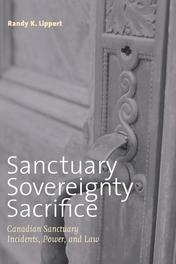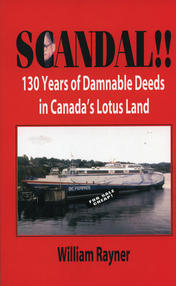Political Science

From Chapter 4: Saboteurs
Bosnia changed Corporal Robert Bilodeau the way wars change all men. He went to the former Yugoslavia in the spring of 1993 as an idealistic 45-year-old volunteer who had served in the RCMP for 20 years. He was assigned to Srebrenica as that city's first full-time UN civilian police station commander. His job was to keep peace in a demilitarized zone packed with 40,000 Muslim refugees. 'Tbe Serbs controlled everything outside the zone while Muslims struggled to stay alive inside it. Meanwhile, the UN stood around, says Bilodeau, "with its thumb up its ass.' In this so-called safe zone, Corporal Bilodeau recorded as many as 2,000 ceasefire violations a day.
In the chaos of Bosnia, Bilodeau's superiors forgot about him. He was abandoned for 115 days in the war zone. Here the affable, fast-talking farm boy supped with a school principal who calmly executed former students and negotiated with a warlord who drove a Mercedes, strutted about like a peacock, and killed with equanimity. He learned that extreme situations can drive people to do things they wouldn't normally do. At night, just before the fighters came out like bats, he drank brandy with men who are now buried in shallow graves.
Rather than defend the enclave, the UN finally let the Serbs overrun it. Within days, the Serbs massacred 7,000 Muslim men and boys. Bilodeau still has nightmares about the men and women he couldn't save. "If you really want to know what Srebrenica was about, imagine a Serb and a Croat raping a Muslim woman with the UN holding a flashlight,"
Bilodeau's tour of duty left him with a common Yugoslavian souvenir: post traumatic stress disorder. PTSD doesn't diminish a man's power of judgment; it just recycles the pain and trauma until he feels stuck in time, hypervigilant and anxious. After Srebrenica, Bilodeau told friends, he didn't have much of a fantasy life.
In 1996, he was posted to the RCMP's Beaverlodge detachment as a sergeant. The small understaffed unit was responsible for upholding law and order in an industrial frontier nearly as big as Bosnia. Bilodeau had worked in the Peace country two decades earlier, and knew that Beaverlodge, with its landscape painters and good schools, was a cultural and artsy sort of place a jewel of the Peace.”
He reckoned it would be a quiet place to end his RCMP career. His wife, Donna, liked the area too, and looked forward to settling down after years of roving as a cop's wife. The couple even designed a "dream house" in town overlooking the Beaverlodge valley. They planned on staying forever.
0ne of Bilodeau's first assignments in Beaverlodge seemed a minor affair -a string of vandalism incidents on a country road being used by Norcen Energy Resources Ltd. Another firm, the Alberta Energy Co., had hired private security to protect its seismic crews. The contested road had been blocked with parked vehicles and spiked with sharpened rebar and roofing nails. Hythe Motors Tire Shop couldn't keep up with the repairs that fall. Even the detachment’s GMC Suburban picked up a couple of flats while on patrol.
The name Wiebo Ludwig came up. Bilodeau asked members of his new detachment what they knew about the man. The constables couldn't offer much other than hearsay. Ludwig was "crazy" and "ran some kind of cult", they reported, and had started his own church and didn't like the oil and gas industry.
To Bilodeau, these stories sounded much too convenient. He set about filling in his intelligence vacuum. An Interpol search on Ludwig pulled up nothing more than the man's birth date - Dec. 19,1941 - and there was nothing on CPIC, the national police computer system. Bilodeau sent two constables out to interview neighbors and decided he would save the Reverend for himself. He called up Ludwig's farm and said he wanted to come over for a visit and hear their side of the story. Ludwig invited "the tin soldier," as he liked to call cops, down.
The next morning, Bilodeau arrived at Trickle Creek for coffee. It was the first and only time anyone from the RCMP heard Ludwig out in civil surroundings. Bilodeau brought Constable Jackie Wheeler along. One of Ludwig's first comments was that Bilodeau "needed a woman to protect him.' Bilodeau replied that some women make extremely good warriors, and added, "I just want another witness."
The whole family sat around in the living room and observed the conversation the way other families watch TV Ludwig's son Ben sat on his father's right and his wife, Mamie, on his left. It was like the Last Supper. Everyone seemed to be sitting in descending order of power and importance.”
It didn't take long for Bilodeau to figure out that Ludwig wasn't the kind of guy who rolls over and plays dead. Ludwig cataloged, with repeated Biblical references, the fumigations, the dead animals, and the two miscarriages.
"Ben buried a child," said Ludwig.
"You mean you lost a child?" Bilodeau asked in disbelief. "How old?"
Ludwig explained that his daughter-in-law Kara had miscarried three months after being gassed by a flaring well.
Bilodeau said "Oh."
Ludwig added that no one in authority seemed to take human miscarriages in sour gas fields very seriously.
The RCMP officer then made his own points. As police we have to work in a neutral position and on a compliance basis with people. I'm a Peace Officer and I'll do whatever I can to keep the peace, but there are rules to follow and Norcen is not doing anything illegal by drilling its well.”
Ludwig said it was criminal and illegal for oil companies to murder children and destroy aquifers. He said he wasn't going to kiss the ass of a corrupt system and that Bilodeau should realize there was trouble brewing here and the legality, as such, could not embrace it.”
Bilodeau said that he was basically powerless, and that maybe Ludwig should put pressure on Alberta's Energy and Utilities Board (EUB), the provincial regulator, or form some kind of citizens' alliance. Ludwig said they had had enough of such merry-go-rounds and asked Bilodeau to let the authorities know that this situation demanded more than present laws are able to deliver.”
Bilodeau, who had worked in the oil patch as a young man, agreed that the industry wasn't angelic. The industry really rapes the land,” he said. They don't have a lot of friends; they are business at its worst. Raping and pillaging the land is what they do best, but they are generating a lot of money, and the government gives them lot of slack because of it.” He added that the EUB worked liked every other bureaucracy. It's part of their nature to give you the runaround.” The residents of Trickle Creek had never heard a tin soldier” talk so candidly.
Bilodeau then talked about the things he had heard and seen in Bosnia. He told Ludwig that he had worked in a place where people lost sight of things and took the law into their own hands. He said it wasn't the fat cats that suffer but the women and children.” In essence, Bilodcau gave Ludwig the Gospel according to Bob: peace, love, and sue the bastard's ass off.
At the end of the meeting, Ludwig appealed to the sergeant to be human, since we share in humanity" and to remember his real and only master, God.
The family agreed to take apart the road block, and perhaps seek a court injunction against Norcen.
Bilodeau left a worried man. He pegged the family not as a cult but, as a sincerely religious, highly disciplined group. He had seen the beards and head scarves before in Hutterite or Mennonite communities.
The children were well-fed and healthy. Mamie looked downtrodden but then women, thought Bilodeau, always got "the shit sandwich" in evangelical communities.
What worried him was Ludwig himself, a man at the end of his rope. He had met fearless and cornered men like Ludwig before in Srebrenica. Such men calmly drew lines in the sand that even blood couldn't erase. Ludwig had set his course and Bilodeau recognized it wasn't keeping the peace. He felt he had met a Muslim in the boreal forest surrounded by an industrial tribe bent on ethnic cleansing.
0n Dec. 1, 1996, three of Ludwig's sons walked out to the Norcen site and got into a shouting match with a dozen workers from Big Valley Construction in Hythe. The Hythites were madder than hell about getting flat tires in their vehicles, and accused the boys of booby-trapping the road. One worker told the boys: We are just following the laws of the land and if you don't like the laws of the land, you should get the hell out of here.” Another said if the Ludwigs wanted to mine the road they should go down to Waco, Texas.”
When Josh Ludwig, one of Wiebo’s sons, tried to say something about the law of God, one worker replied, Well, we're not God-loving people! The Ludwig family diary, a voluminous document, recalls this comment as very crass indeed.”
That night the Ludwigs brought out a mug of coffee to a cold security guard watching the access road. The guard was grateful for the warmth and chatted a bit. He thought the nails that oil workers had found on the road were a pretty wild idea. Ten to one its a bunch of kids, pulling pranks.”
While the security guard was being entertained, a sour gas well southeast of Trickle Creek was sabotaged. Someone poured acid on the remote-control operation valve, causing a chemical meltdown and setting off the sour gas alarm at the Alberta Energy Co.'s Hythe-Brainard plant. An AEC emergency response crew later found boot prints in the snow that led down the road toward Trickle Creek.
When RCMP Corporal Cal Mosher arrived on the scene, he reported a pickup truck not far from the well with a bunch of Ludwigs milling about. The next day, two AEC employees replaced the damaged valve, then left for an hour to locate another part. During that time, someone stole their new $6,000 valve.
Before Bilodeau could question Ludwig about the mayhem, Dad and Mom,” as the family's diary put it, stormed into his office in Beaverlodge. Ludwig wasn't in a good mood and told Bilodeau why. A neighbor, recovering from heart surgery, had told Ludwig that two constables had questioned him in hospital. They had wanted to know about his family's habits, the number of children, their interest in guns, and many other things. Ludwig thought the police had acted wickedly and accused them of trying to create another Waco situation.” He was particularly incensed that the police would









